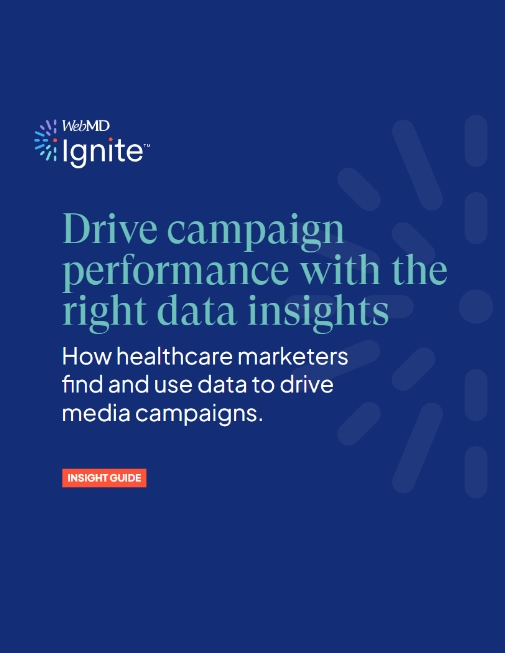Drive Campaign Performance with the Right Data Insights
Unlock the Power of Data to Optimize Your Healthcare Marketing Campaigns
In today’s healthcare marketing landscape, the days of “spray and pray” are over. Marketers now have access to vast, actionable data that can help tailor media campaigns to specific target audiences. But not all data is equal. To achieve maximum performance, healthcare marketers need accurate, real-time data with the right permissions and consent.
Why Data Insights Matter for Healthcare Marketers
- Targeted Campaigns: Drive more relevant impressions and optimize campaign performance by using precise data that helps you reach the right audience.
- Real-Time Insights: Stay agile and improve campaign performance by activating data dynamically at scale, with up-to-date audience insights.
- Compliance & Privacy: Protect sensitive health data while ensuring compliance with healthcare regulations like PHI (Protected Health Information) and PII (Personally Identifiable Information).
Types of Data You Need for Effective Healthcare Marketing
1. Deterministic Data (First-Party Data)
- Examples: Name, age, email address, shopping behaviors.
- Pros: Accurate and verifiable, helping you target real people.
- Reach: Close to 100% reach potential, depending on the data source.
2. Probabilistic Data
- Examples: Behavioral patterns, machine learning-derived predictions, and device mapping.
- Pros: Helps fill gaps in your deterministic data, useful for expanding audience reach across multiple touchpoints.
- Challenges: Needs to be accurate and timely to avoid inefficiencies.
3. HCP-Specific Data
- Target healthcare professionals (HCPs) using National Provider Identifier (NPI) data and other verified sources.
- Real-Time Insights: Physician data can change frequently, making it important to use up-to-date, verified information to ensure effective outreach.
Key Considerations for Data-Driven Marketing in Healthcare
1. How Much of Your Data is Deterministic?
Ensure your data is sourced from verifiable, real-world interactions to guarantee accurate targeting and meaningful engagement.
2. How Well Do You Understand Your Target Audience?
In healthcare marketing, understanding the specifics of your target audience at the individual level is crucial. From patient behaviors to healthcare providers’ decision-making processes, deeper insights drive better results.
3. Data Privacy & Compliance
How is your data sourced, aggregated, and anonymized to ensure compliance with privacy regulations, especially regarding sensitive health information?
4. How Often is Your Data Updated?
Stale data can lead to wasted marketing spend and suboptimal performance. Make sure your data provider has an active refresh cycle for audience insights.
5. How Well Can You Connect Data Across Groups?
Connecting the dots between healthcare professionals (HCPs), patients, and institutions is key to understanding the complete healthcare journey. Can your data provider do this?
Use Case: Leveraging Modeled Data to Target High-Value Consumers
Consumer data models can provide invaluable insights into your audience’s propensity for seeking care. For example, a High-Value Care Seeker Model analyzes over 70 different variables, predicting which individuals are likely to invest in healthcare services over the next 18 months.
Example: Targeting Cardiovascular Campaigns
- Target: Men aged 40-60 with a family history of heart disease, high-income levels, and digitally savvy behaviors.
- How: Utilize modeled data based on medical claims, demographic data, and online activity to reach the right individuals and deliver highly personalized content.
This article is posted at webmdignite.com

Please fill out the form to access the content

